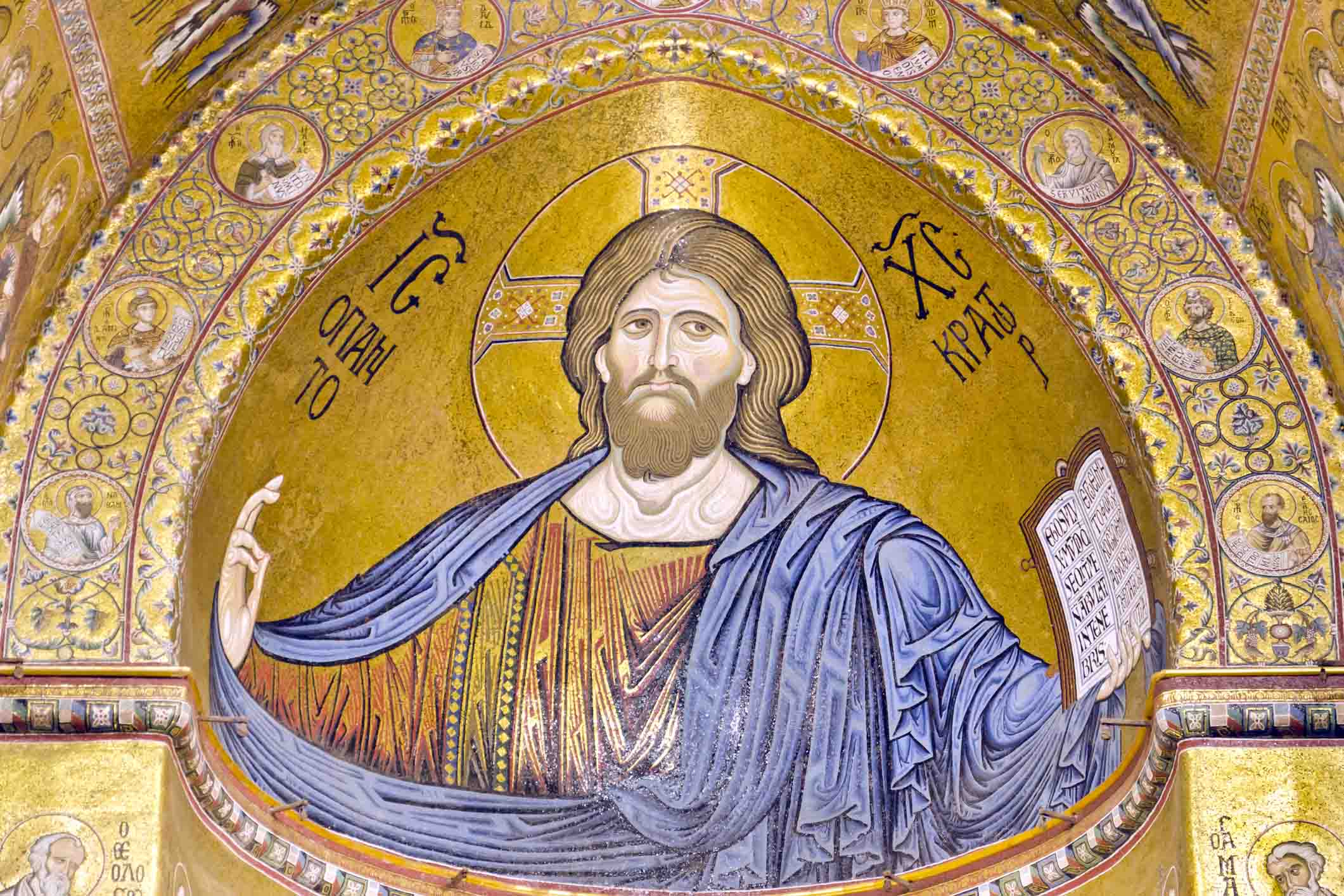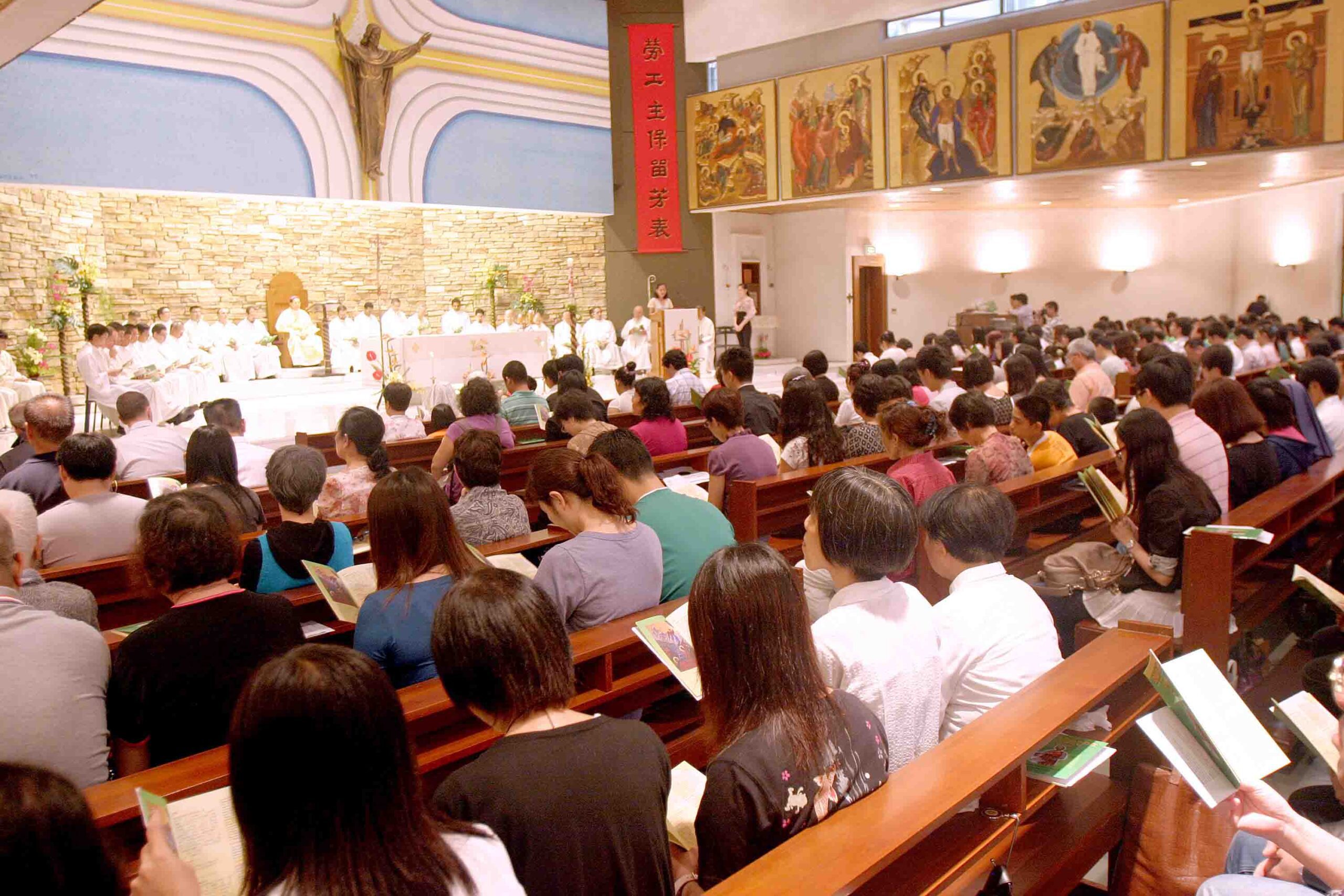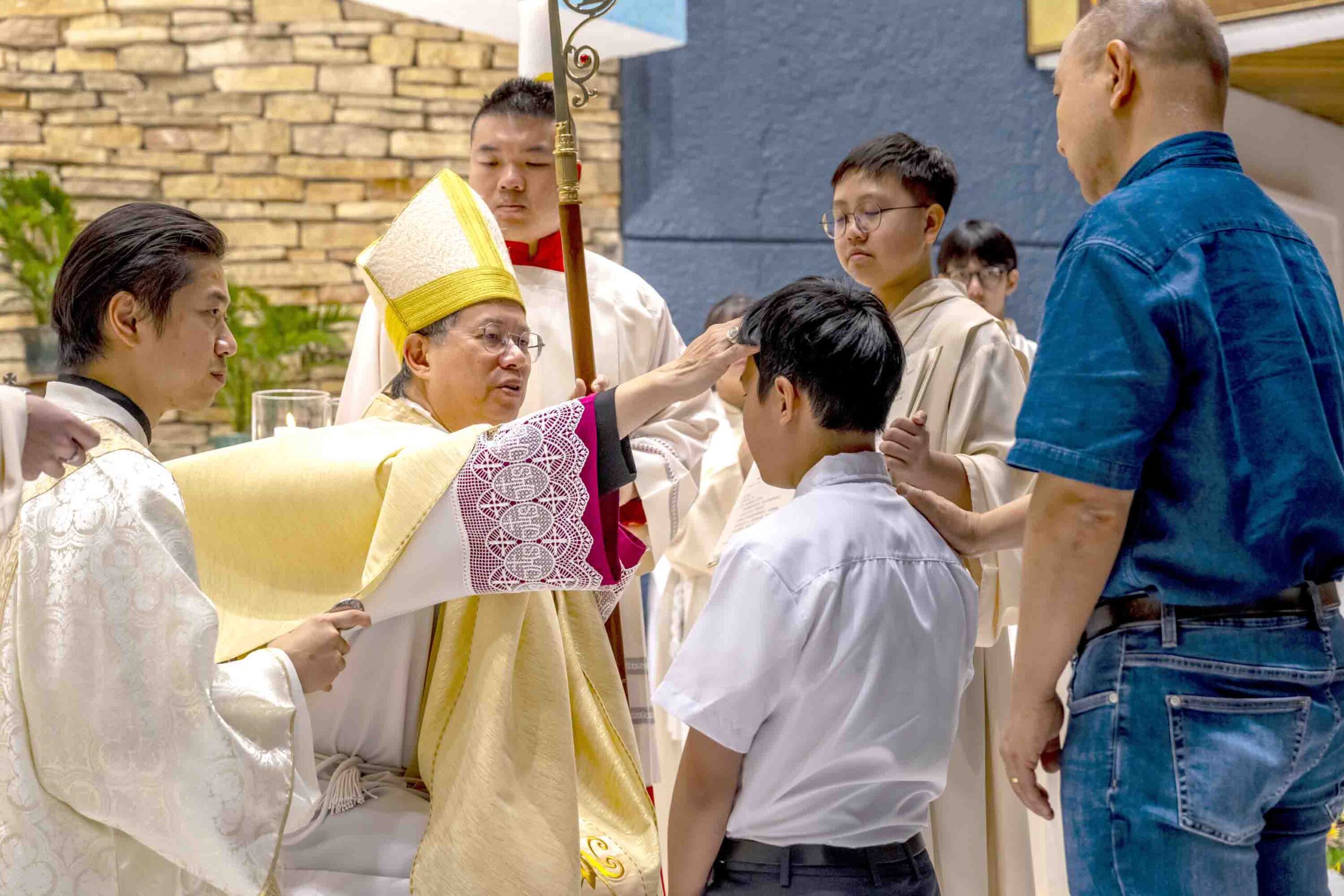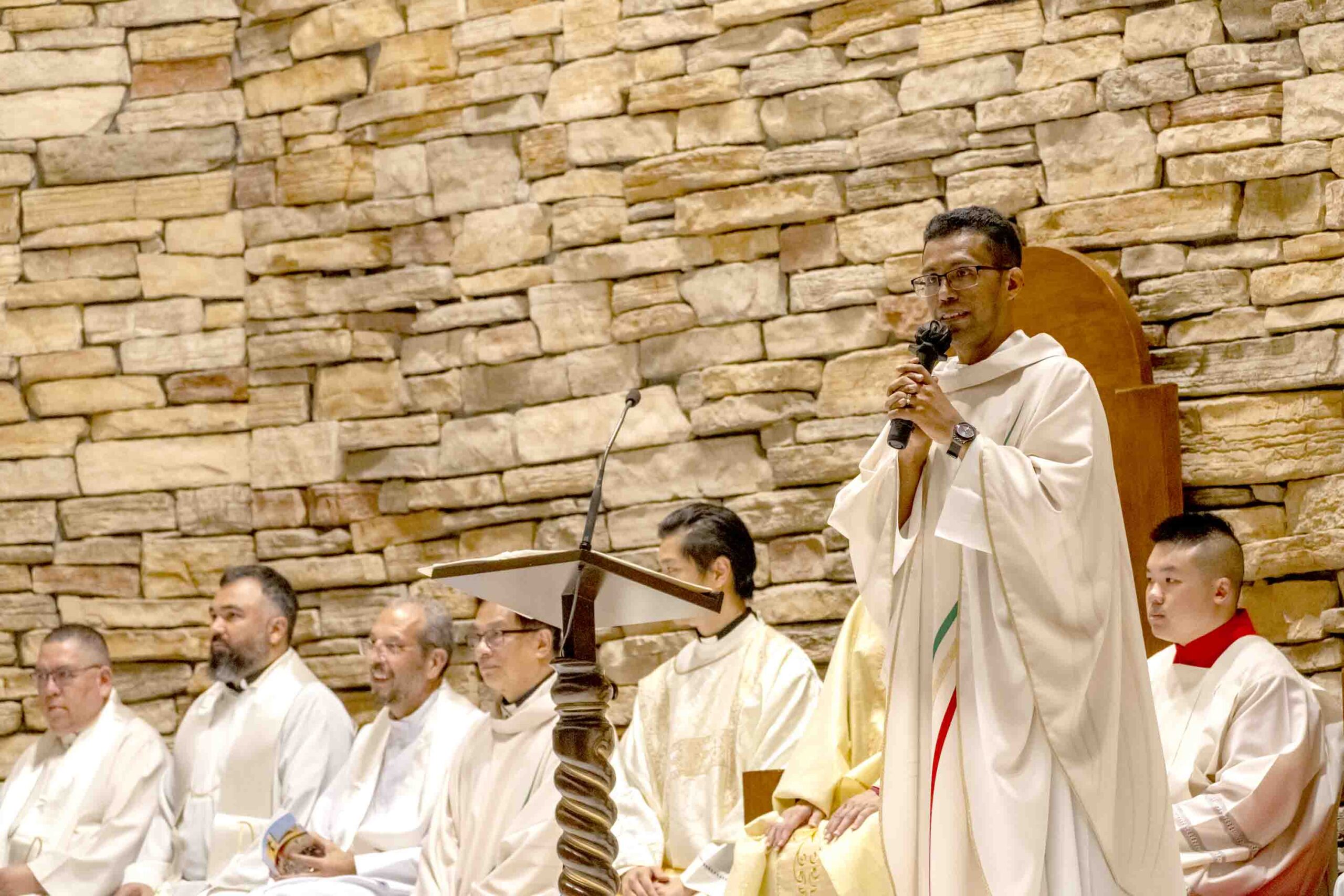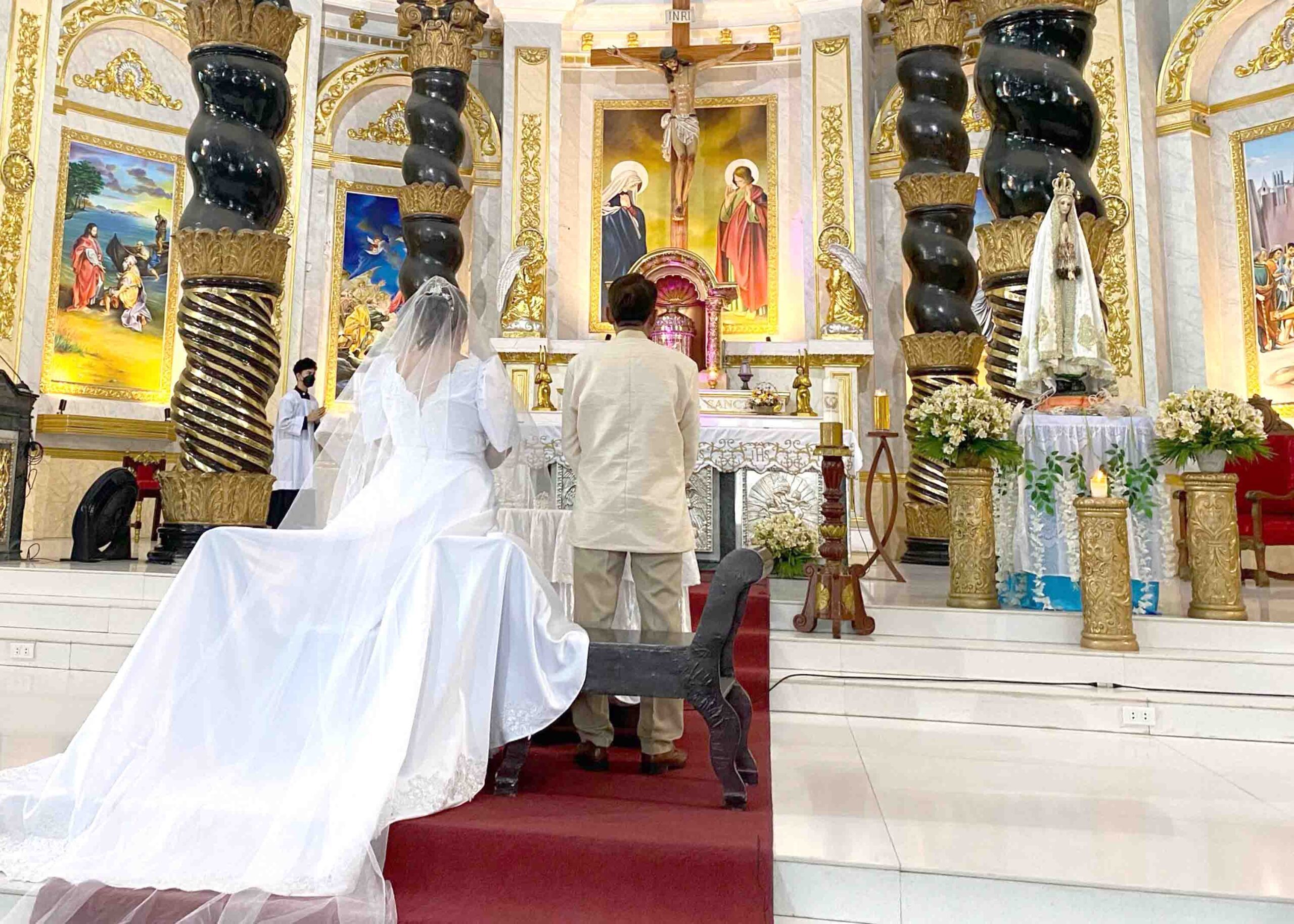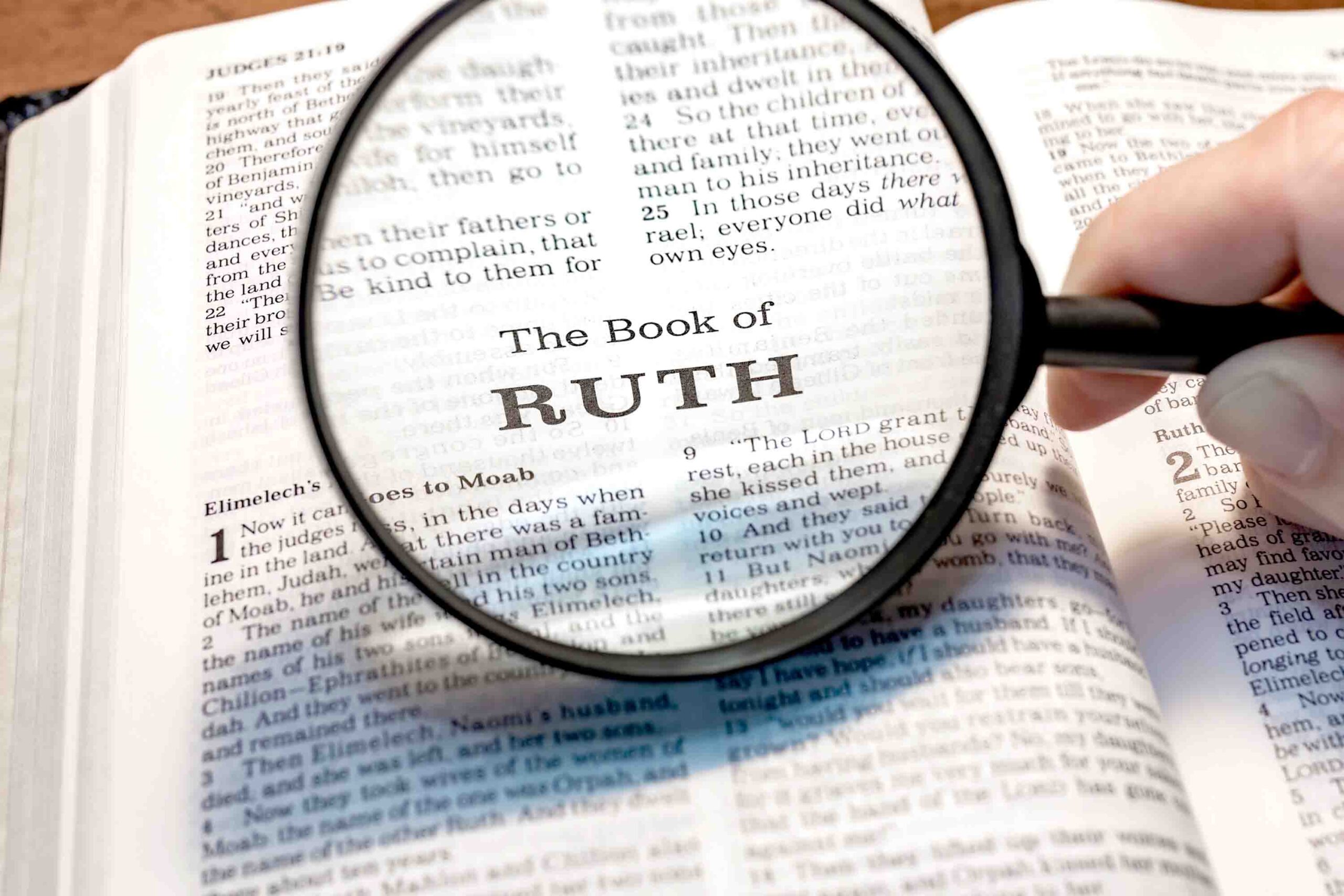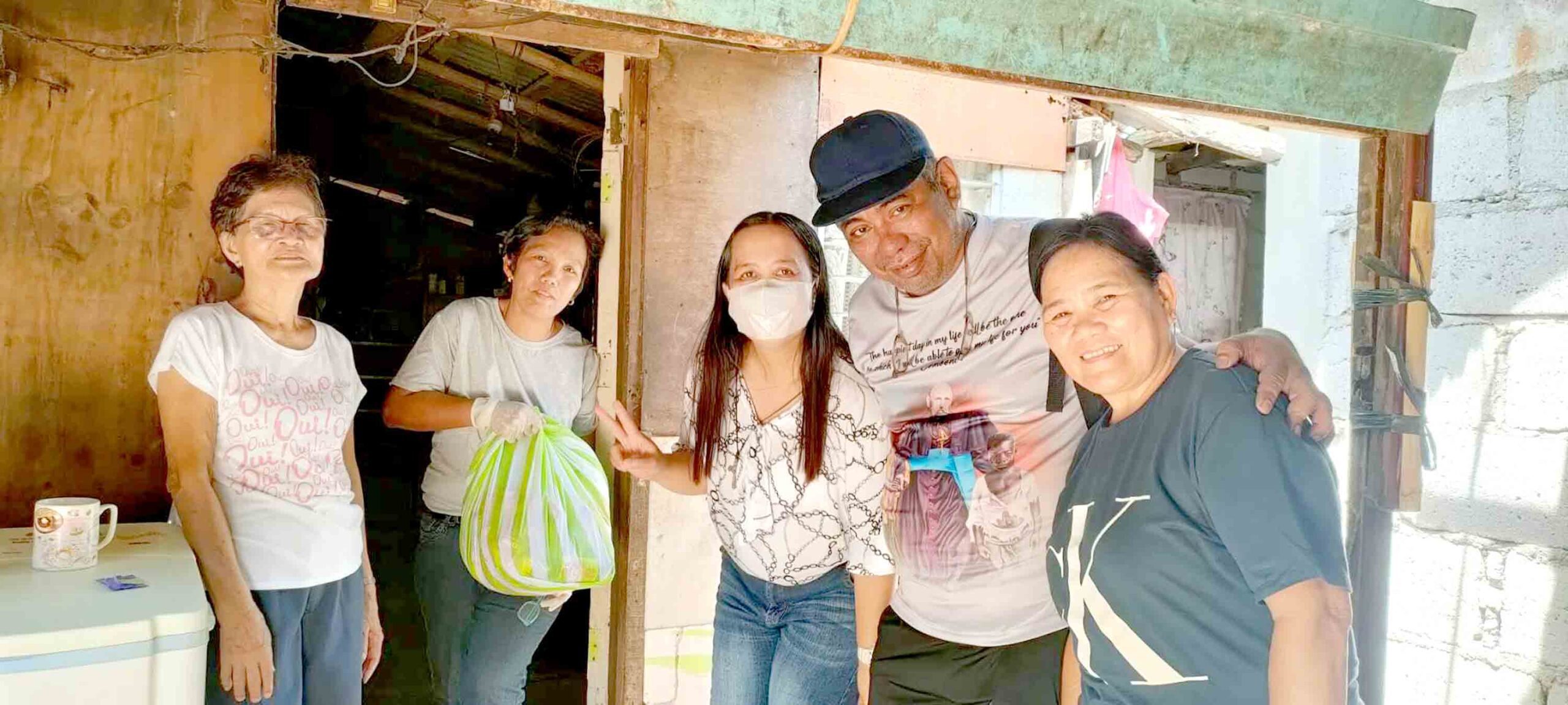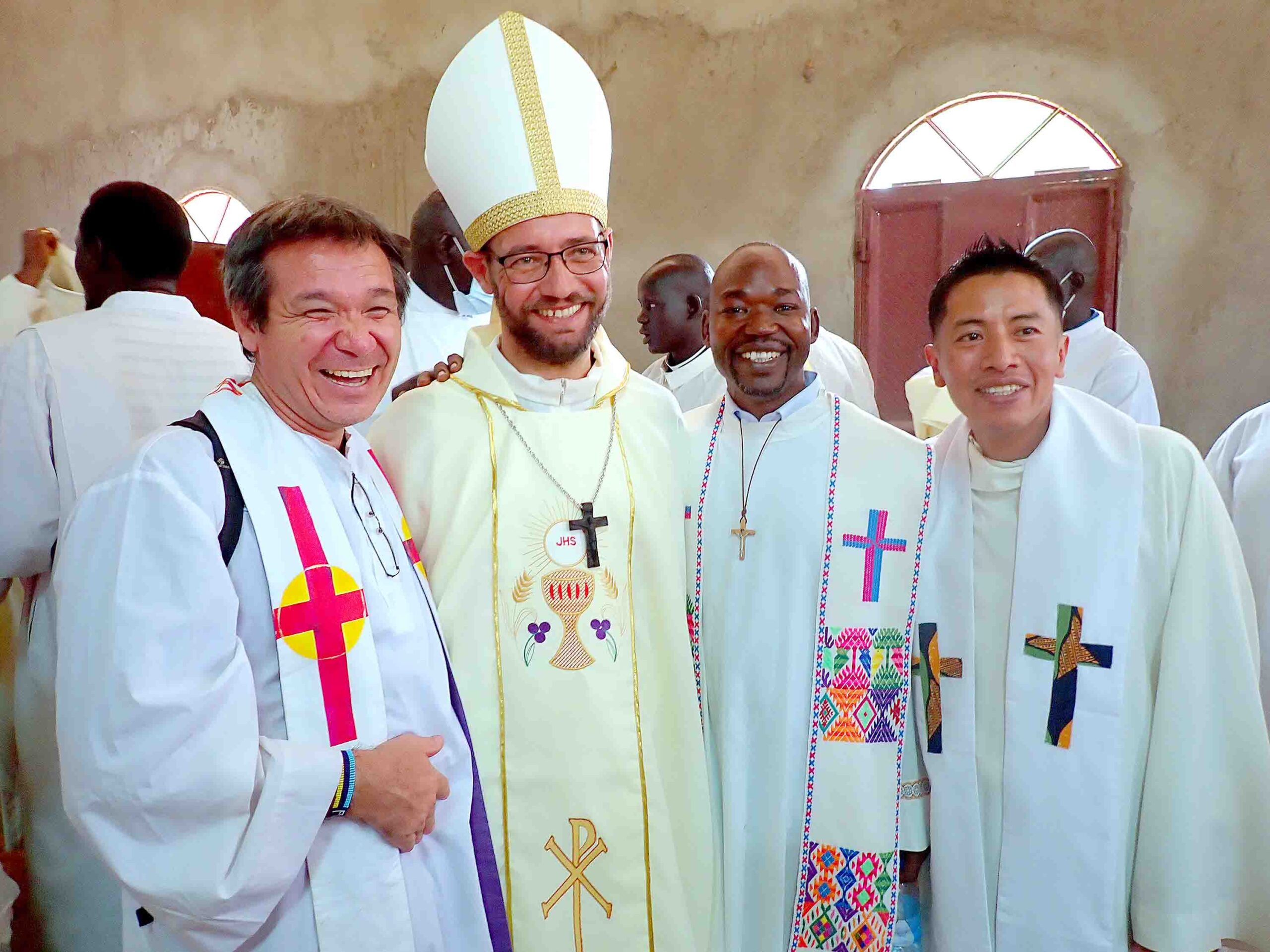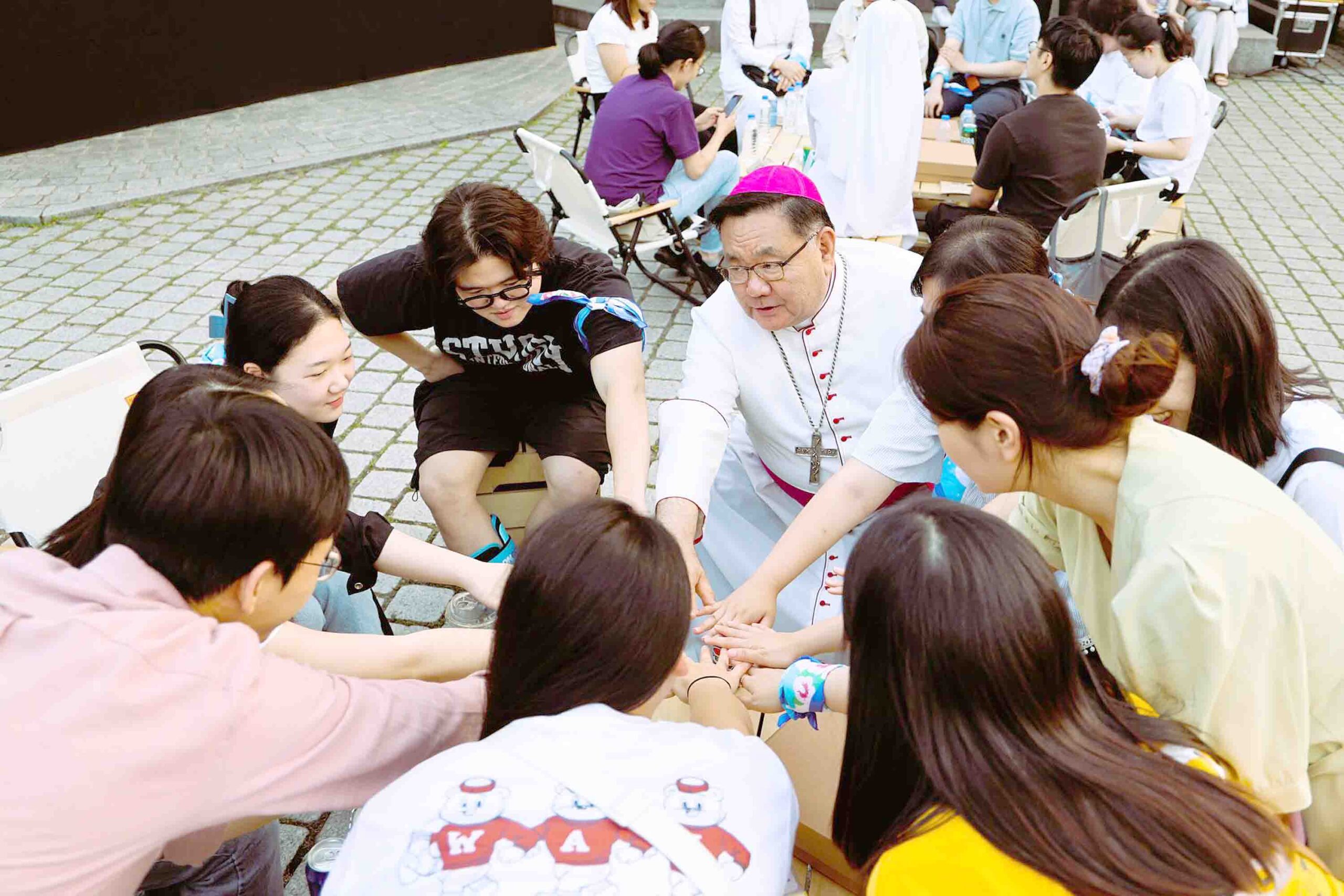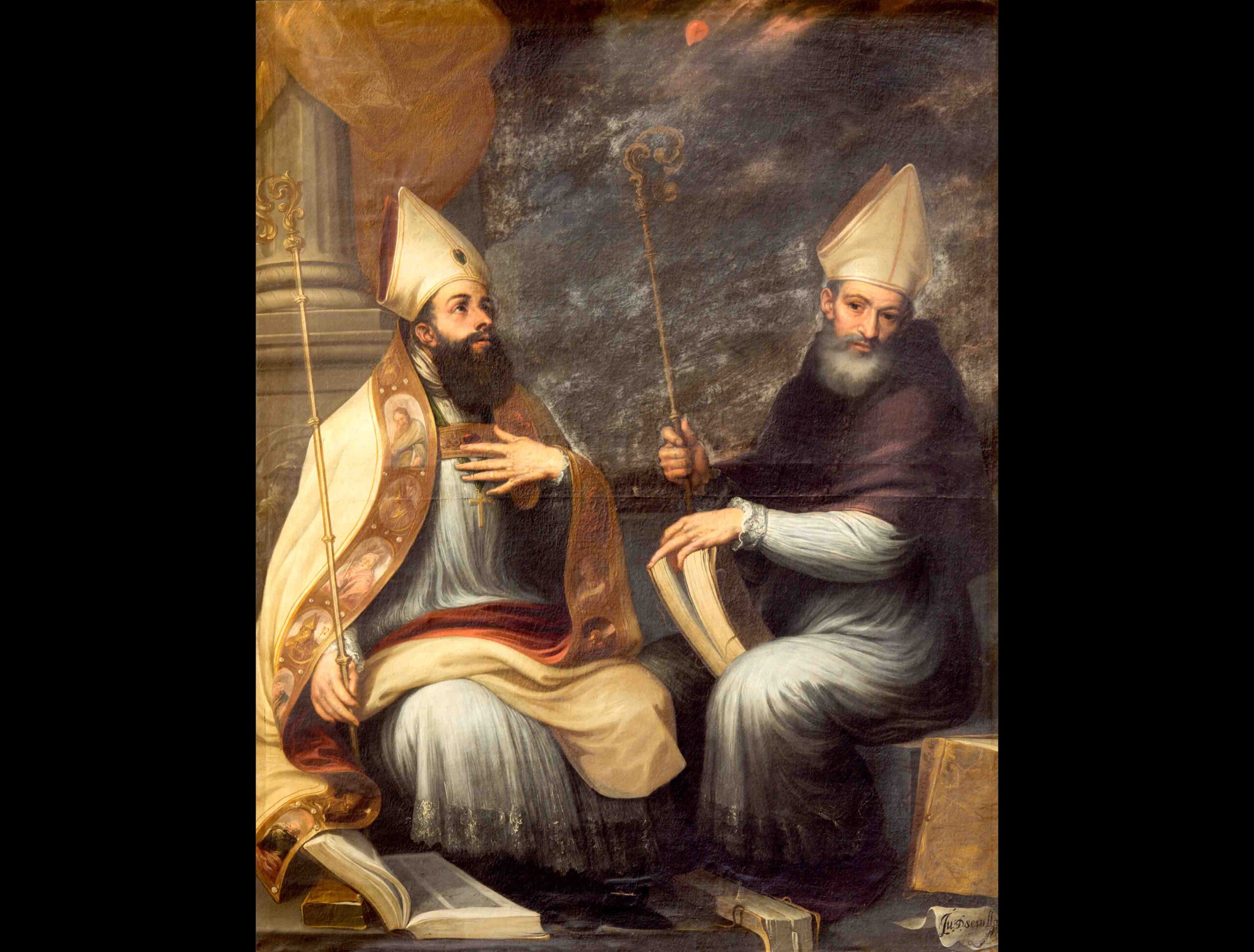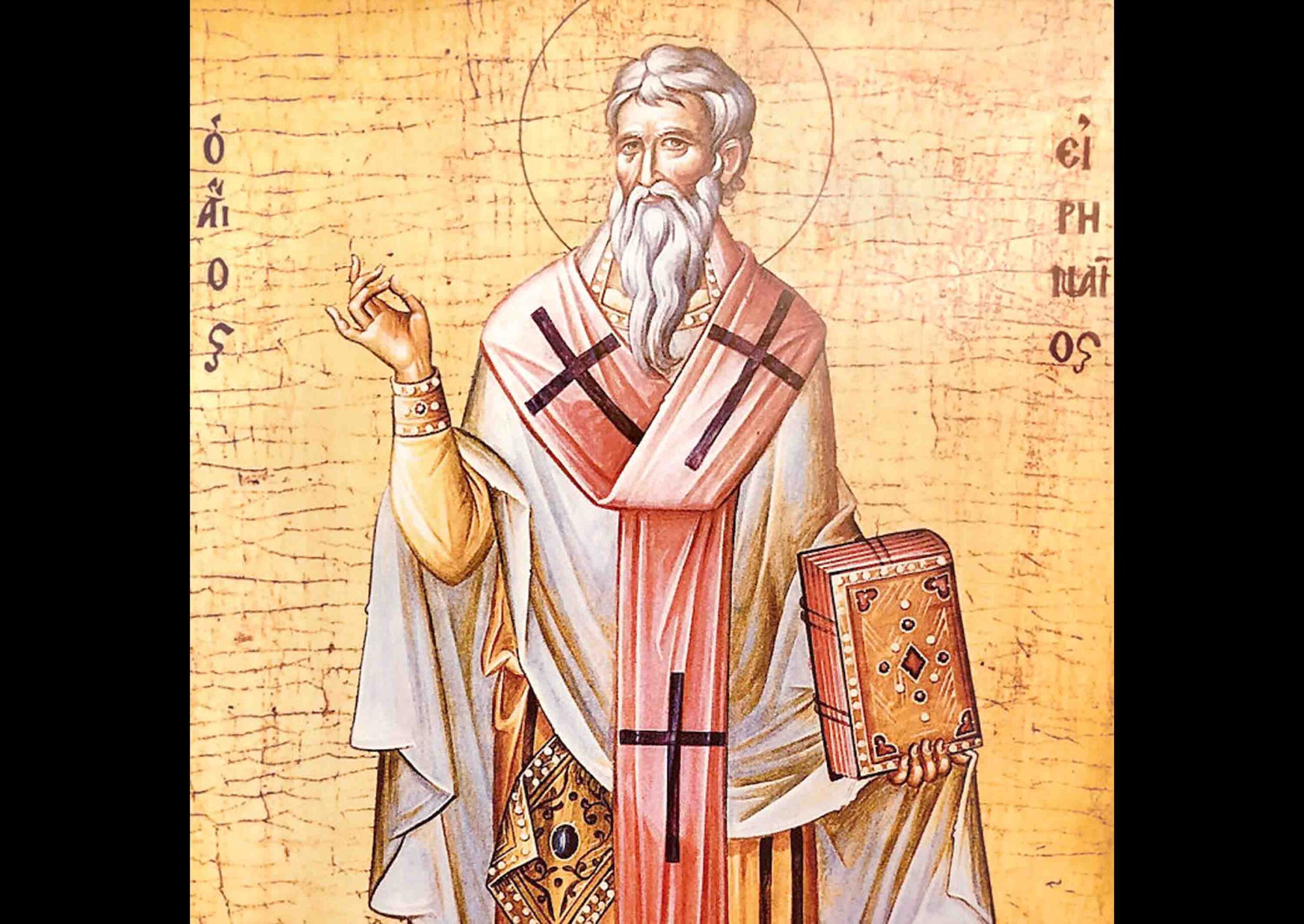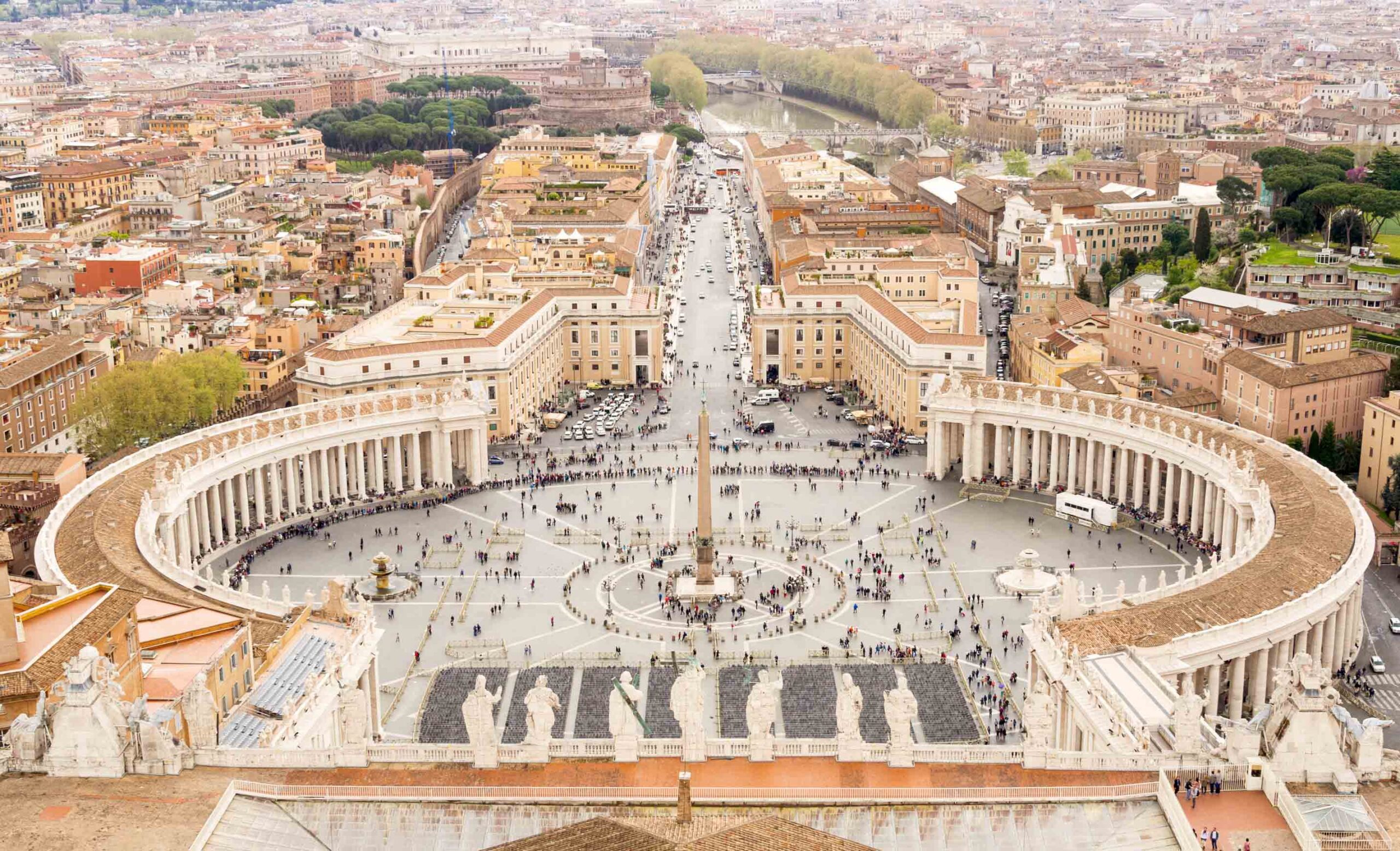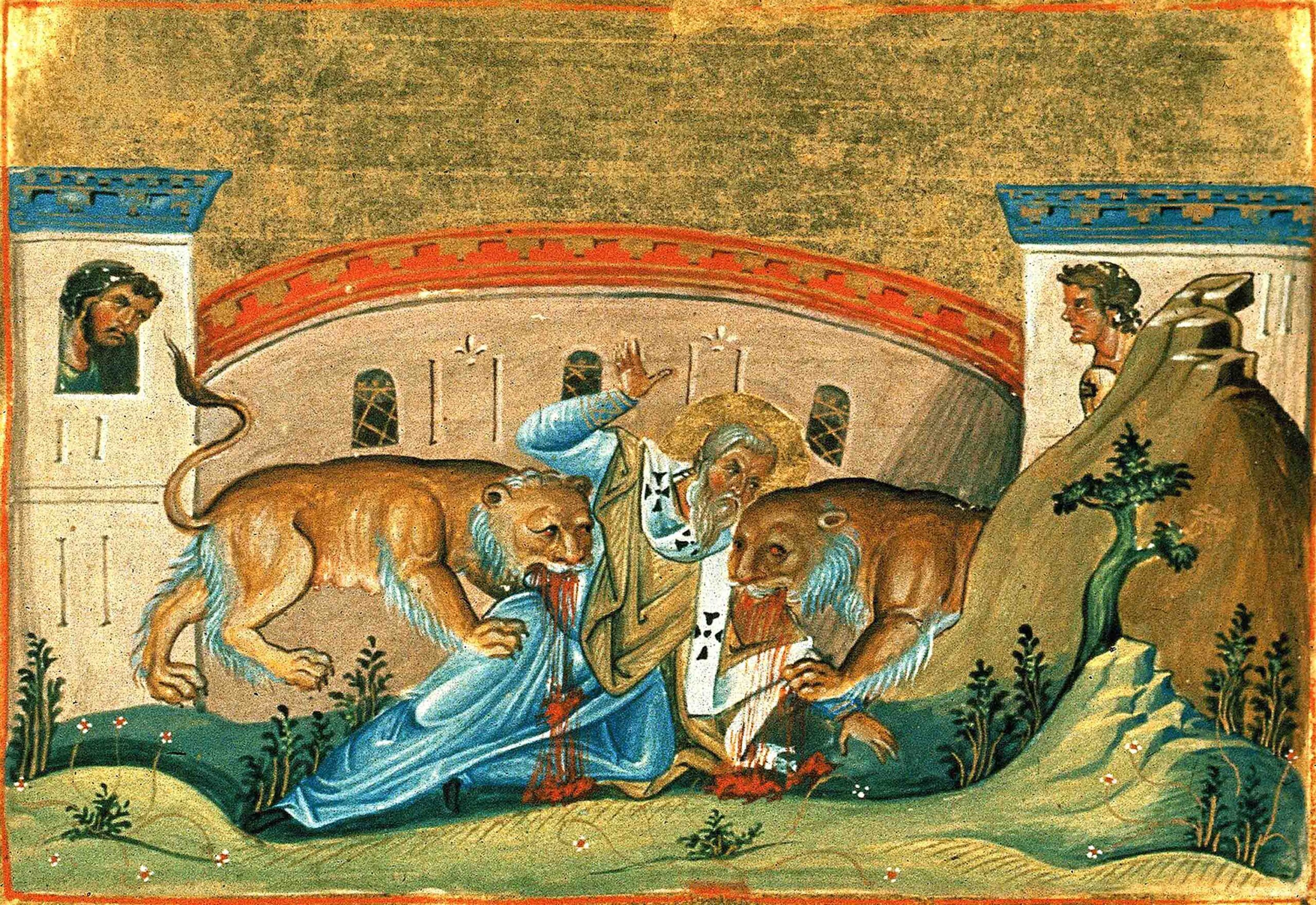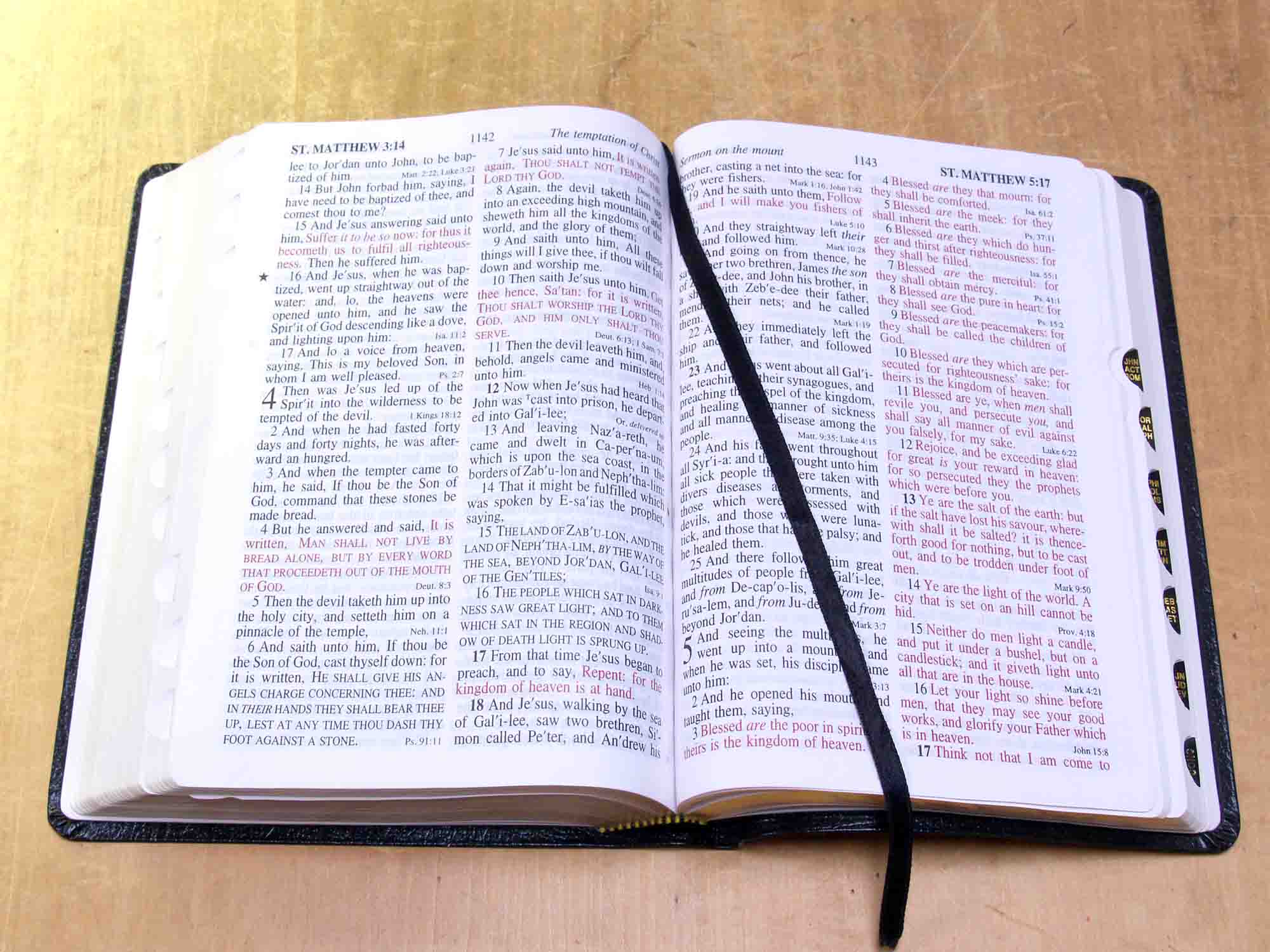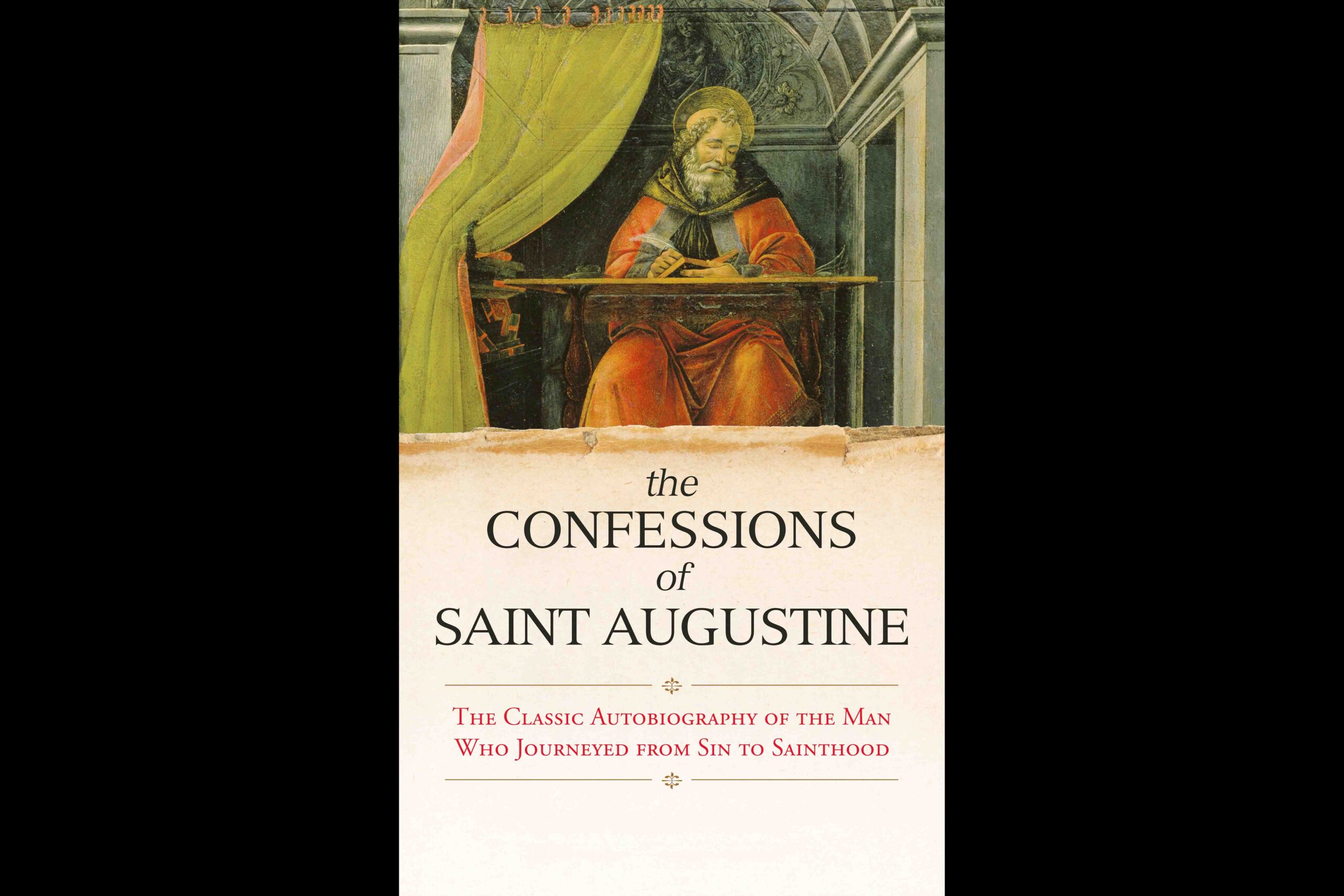It was Emperor Constantine who gave Christians the freedom to exercise their religion with the Edict of Milan in the year 313 AD. He also moved the centre of the Roman Empire eastward. We have selected among the Fathers of the centuries of freedom only one Father from the East, writing in Greek: Saint John Chrysostom. From the West, writing in Latin, we will cover three fathers: Saint Jerome, the great biblical scholar, Saint Ambrose of Milan and the greatest of all, Saint Augustine.
Freedom for Christianity didn’t mean absence of problems or difficulties for the Church. As a matter of fact, Saint John Chrysostom died in exile because of his opposition to the emperor and Saint Augustine saw the siege and looting of the city of Rome by the Vandals, one of the nomadic tribes (Barbarians) that will eventually destroy the Roman Empire but will in the end be converted to the Catholic Faith.
Saint John Chrysostom was born at Antioch about 349 AD, where he was ordained and exercised his pastoral ministry for many years. His preaching bore great fruit and his writings revealed the brilliance of his intellect and the strength of his faith. He lived an austere life, striving to reform the morals of clergy and people. It was in 397 AD that he became bishop of Constantinople.
NO NEED OF GOLDEN VESSELS
The following is the famous homily he gave about the relationship between the Eucharist and the poor: “Do you wish to honor the body of Christ? Do not neglect him when he is naked. Do not honor him here inside with silken robes but neglect him outside as he is perishing of cold and nakedness. The one who said, ‘This is my body,’ and established the fact by his word, is also the one who said, ‘You saw me hungry and did not give me to eat,’ and ‘As much as you did not do for one of these least ones, you did not do to me.’ The body of Christ in the Eucharist has no need of garments but of a pure soul; the body of Christ outside needs much care. Let us learn how to become wise and to honor Christ as he wishes. The most agreeable honor for a person being honored is the honor he desires, not that which we think best. Peter thought he was honoring Christ when he refused to let him wash his feet, yet what resulted was not honor but its opposite. Thus, render him the very honor which he himself prescribed by spending your wealth on the poor. God has no need of golden vessels but of golden souls. Now in saying this, I am not hindering you from making such votive offerings as these. I am insisting that, along with these and before these, you give alms. He accepts the former but is much more pleased with the latter.
In the former instance, only the one who offers the gift receives some benefit; in the latter instance, the one who receives benefits, too. In the former instance the matter can be a cause of ostentation, but alms are all kindness. What use is it to Christ if his table is loaded with golden vessels but he himself is perishing of hunger? First, fill him when he is hungry, then also adorn his table with what remains. Do you fashion a gold cup but not give a cup of cold water? What good is that? Do you prepare his table with cloth of gold but not provide him with the necessary covering? What gain is to be had from this?
CHRIST COMES AS A BEGGAR
Tell me, if you saw someone lacking the necessary food and failed to satisfy his hunger but only surrounded his table with gold, would he then be grateful to you or would he not rather be angry? Consider this with regard to Christ when he comes by as a beggar or a stranger needing shelter. You fail to take him in but you adorn the foundations and the walls and the capitals of the columns.
You fashion silver chains for the lamps but do not even wish to see him chained in prison. When I say these things, I am not hindering you from being zealous to provide these ornaments but I am urging you to provide other things along with them and to provide them before the ornaments.
No one has ever been accused for not providing ornaments. Those who do not provide for their neighbour, however, are threatened with hell and unquenchable fire and torments with demons. Do not decorate this house and neglect your suffering brother. He is more truly a temple than this building” (Homily 50 on the Gospel of Matthew).

